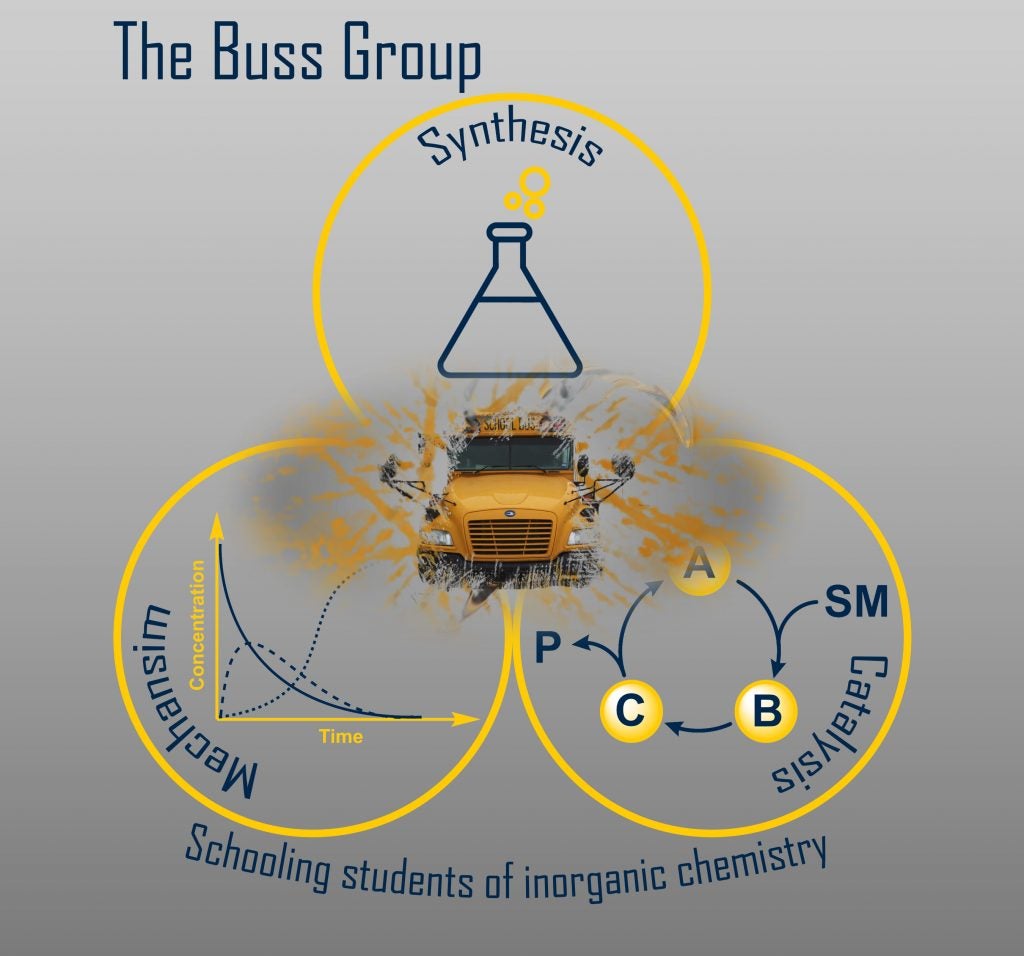
Researchers in the Buss group will use the tools of synthetic inorganic and organometallic chemistry to prepare and study complex molecular systems capable of providing structural and mechanistic insight in the broader context of catalysis. A particular focus involves gaining an understanding of how multimetallic constructs of both the same metals (homometallic) and different metals (heterometallic) can react in synchrony to perform challenging redox processes and activate challenging small molecule substrates. From the fundamentals of coordination chemistry to detailed mechanistic studies, our work—inspired by the remarkable activity of both heterogeneous materials and biological systems—aims to answer questions relevant to the bond breaking and bond making processes foundational to our energy landscape.
Through both their own work and collaboration with their coworkers, researchers in the Buss group can expect to develop:
- A mastery of rigorous air- and moisture-free synthetic techniques, including glovebox, Schlenk, and high vacuum line competency for the safe and effective preparation of reactive transition metal and main group species.
- A suite of techniques for the characterization of novel inorganic and organometallic compounds–NMR, EPR, UV-visible, and IR spectroscopies; electrochemistry; single-crystal X-ray diffraction; density functional theory calculations.
- A tool set to study reaction mechanism–kinetics, in situ spectroscopy, chemical probes, careful control reactions, independent synthesis–in both stoichiometric transformations and catalysis.
- A passion for conducting synthetic chemistry in a supportive environment, brainstorming and executing projects both in an effort to help, and with the help of, others!


